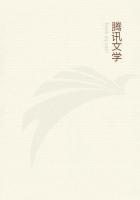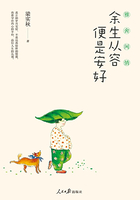The comparison is most instructive, showing us to what an extent Rabelais' admirable style was due to conscious effort, care, and elaboration, a fact which is generally too much overlooked, and how instead of leaving any trace which would reveal toil and study, it has on the contrary a marvellous cohesion, precision, and brilliancy. It was modelled and remodelled, repaired, touched up, and yet it has all the appearance of having been created at a single stroke, or of having been run like molten wax into its final form.
Something should be said here of the sources from which Rabelais borrowed.
He was not the first in France to satirize the romances of chivalry. The romance in verse by Baudouin de Sebourc, printed in recent years, was a parody of the Chansons de Geste. In the Moniage Guillaume, and especially in the Moniage Rainouart, in which there is a kind of giant, and occasionally a comic giant, there are situations and scenes which remind us of Rabelais. The kind of Fabliaux in mono-rhyme quatrains of the old Aubery anticipate his coarse and popular jests. But all that is beside the question; Rabelais did not know these. Nothing is of direct interest save what was known to him, what fell under his eyes, what lay to his hand--as the Facetiae of Poggio, and the last sermonnaires. In the course of one's reading one may often enough come across the origin of some of Rabelais' witticisms; here and there we may discover how he had developed a situation. While gathering his materials wherever he could find them, he was nevertheless profoundly original.
On this point much research and investigation might be employed. But there is no need why these researches should be extended to the region of fancy.
Gargantua has been proved by some to be of Celtic origin. Very often he is a solar myth, and the statement that Rabelais only collected popular traditions and gave new life to ancient legends is said to be proved by the large number of megalithic monuments to which is attached and name of Gargantua. It was, of course, quite right to make a list of these, to draw up, as it were, a chart of them, but the conclusion is not justified. The name, instead of being earlier, is really later, and is a witness, not to the origin, but to the success and rapid popularity of his novel. No one has ever yet produced a written passage or any ancient testimony to prove the existence of the name before Rabelais. To place such a tradition on a sure basis, positive traces must be forthcoming; and they cannot be adduced even for the most celebrated of these monuments, since he mentions himself the great menhir near Poitiers, which he christened by the name of Passelourdin. That there is something in the theory is possible. Perrault found the subjects of his stories in the tales told by mothers and nurses.
He fixed them finally by writing them down. Floating about vaguely as they were, he seized them, worked them up, gave them shape, and yet of scarcely any of them is there to be found before his time a single trace. So we must resign ourselves to know just as little of what Gargantua and Pantagruel were before the sixteenth century.
In a book of a contemporary of Rabelais, the Legende de Pierre Faifeu by the Angevin, Charles de Bourdigne, the first edition of which dates from 1526 and the second 1531--both so rare and so forgotten that the work is only known since the eighteenth century by the reprint of Custelier--in the introductory ballad which recommends this book to readers, occur these lines in the list of popular books which Faifeu would desire to replace:
'Laissez ester Caillette le folastre, Les quatre filz Aymon vestuz de bleu, Gargantua qui a cheveux de plastre.'
He has not 'cheveux de plastre' in Rabelais. If the rhyme had not suggested the phrase--and the exigencies of the strict form of the ballade and its forced repetitions often imposed an idea which had its whole origin in the rhyme--we might here see a dramatic trace found nowhere else. The name of Pantagruel is mentioned too, incidentally, in a Mystery of the fifteenth century. These are the only references to the names which up till now have been discovered, and they are, as one sees, of but little account.
On the other hand, the influence of Aristophanes and of Lucian, his intimate acquaintance with nearly all the writers of antiquity, Greek as well as Latin, with whom Rabelais is more permeated even than Montaigne, were a mine of inspiration. The proof of it is everywhere. Pliny especially was his encyclopaedia, his constant companion. All he says of the Pantagruelian herb, though he amply developed it for himself, is taken from Pliny's chapter on flax. And there is a great deal more of this kind to be discovered, for Rabelais does not always give it as quotation. On the other hand, when he writes, 'Such an one says,' it would be difficult enough to find who is meant, for the 'such an one' is a fictitious writer.
The method is amusing, but it is curious to account of it.
The question of the Chronique Gargantuaine is still undecided. Is it by Rabelais or by someone else? Both theories are defensible, and can be supported by good reasons. In the Chronique everything is heavy, occasionally meaningless, and nearly always insipid. Can the same man have written the Chronique and Gargantua, replaced a book really commonplace by a masterpiece, changed the facts and incidents, transformed a heavy icy pleasantry into a work glowing with wit and life, made it no longer a mass of laborious trifling and cold-blooded exaggerations but a satire on human life of the highest genius? Still there are points common to the two.















